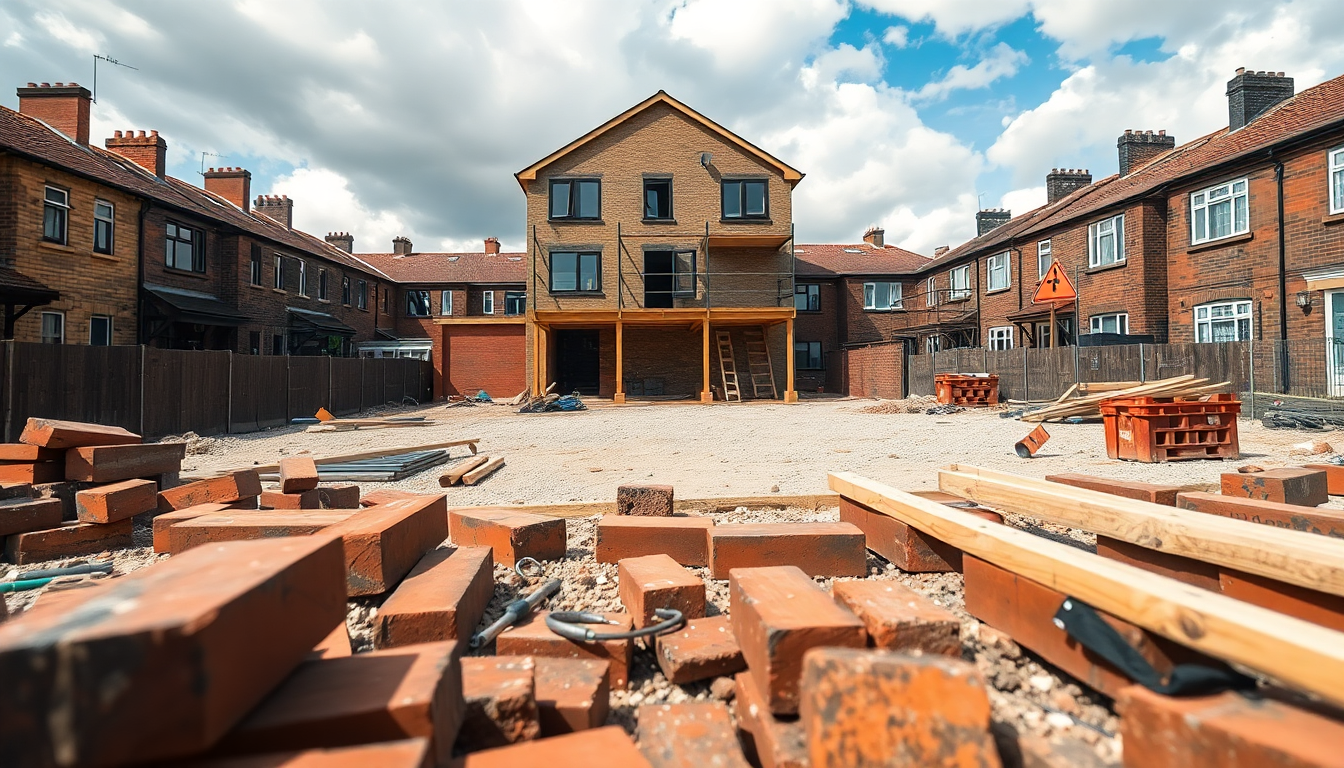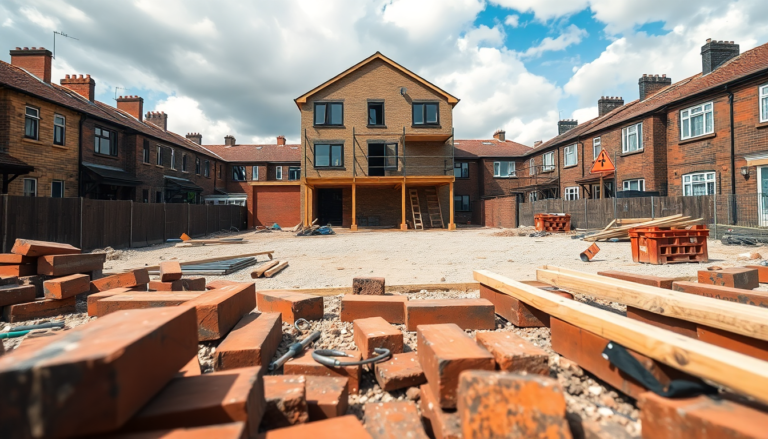
Exploring the pitfalls of property development without proper planning permissions.

When it comes to property development, the allure of grandeur can often blind homeowners to the foundational principles of planning regulations. Just take the recent case in Bradford, where a businessman’s ambitious vision spiraled into an unexpected legal and financial nightmare.
Raziq Ali planned to replace a simple garage with a more functional space, only to find himself at the center of controversy after building a three-story dwelling that has drawn the ire of local authorities. This situation serves as a stark reminder: adhering to planning permissions is crucial, and ignoring them can have real-world implications.
Understanding the Numbers Behind Planning Permissions
Initially, Raziq Ali secured permission to demolish his garage and replace it with a larger structure. The original approval was for a storage space to complement his £350,000 home. However, instead of sticking to the granted plans, Ali constructed a full-fledged detached dwelling, complete with self-contained living facilities. This highlights a critical oversight that many developers overlook: understanding the true scope of what has been approved.
In March 2023, Bradford Council issued an enforcement notice demanding the demolition of Ali’s unauthorized structure, stating it ‘dominates’ the area. The numbers tell a compelling story: Ali’s unauthorized build spanned 85 square meters, dwarfing the modest garage that had been permitted. Such a significant deviation not only violates planning codes but also disrupts the harmony of the neighborhood, raising important questions about community impact and responsibility. What does this mean for future homeowners or developers? The data suggests that failing to comply with granted permissions can lead to hefty fines and legal battles. Ali’s case exemplifies the troubling churn rate of trust between homeowners and local authorities when projects spiral out of control.
Case Study: The Consequences of Overreaching
Ali’s situation isn’t an isolated incident; countless developers have faced similar fates when their ambitions outpace regulatory approval. His story reveals several critical lessons. Despite claiming he was misled by builders, the responsibility ultimately rests with the homeowner to ensure compliance with local laws. This mirrors what I’ve learned in the startup world: you must be vigilant about your growth metrics and regulatory compliance to avoid pitfalls that could derail your efforts.
Three failed attempts to secure retrospective planning permission underscore the uphill battle that Ali now faces. He argued that the structure was necessary for accommodating a disabled family member, but his justifications fell short with planners. The Planning Inspectorate’s dismissal of his appeal indicates a broader trend: emotional appeals often don’t sway regulatory bodies without clear, documented needs.
This case serves as a reminder that emotional narratives must be backed by solid data and adherence to regulations. Just as I’ve seen startups fail when they chase growth without a sustainable business model, Ali’s journey underscores the dangers of pursuing development without following the rules.
Practical Lessons for Homeowners and Developers
If you’re considering property development, the key takeaway from Ali’s experience is straightforward: understand your planning permissions and adhere strictly to them. Here are some actionable lessons derived from this case:
- Conduct Thorough Research: Before breaking ground, make sure you fully understand local planning regulations and the limits of your approval.
- Consult Professionals: Engage architects and planning consultants who can guide you through the process and help avoid costly missteps.
- Document Everything: Keep detailed records of all communications and approvals. Should disputes arise, having thorough documentation can be invaluable.
- Be Realistic: Understand that ambitious projects often come with scrutiny. Ensure your vision aligns with community standards and regulatory frameworks.
Ultimately, Ali’s costly mistake serves as a cautionary tale for homeowners and developers alike. Ignoring planning permissions can lead to significant financial burdens, legal battles, and community discontent.
Conclusion: Building Responsibly for the Future
The ramifications of Raziq Ali’s case extend beyond personal repercussions; they exemplify the broader challenges homeowners face in navigating the complex landscape of property development. By prioritizing compliance and understanding the implications of planning regulations, future developers can steer clear of similar pitfalls. Having witnessed the failures of many in the startup ecosystem, I can assure you that success lies in the details—be it in business or building.






